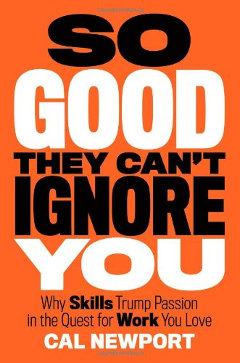We just heard our dear friend Jeannie Harris has passed away at age 37. Some who read this blog will know her. She kept the Mountain Memories (Ryan and Jeannie) blog to which we link in our blog roll in the right sidebar. This is a tremendous loss of a wonderful person, wife and mother.
Month: June 2016 Page 1 of 2

I am trying to talk our little family into upping our game a little when it comes to guns. My cousin Merle and his daughter, my favorite government school teacher, are our main advisors in this effort. We thought it would be nice to get everyone a new handgun, then go to some shooting events together as a family thing. With guns on my mind, a couple of great articles came onto my radar. Real Gun Sense: Tennessee Makes Proprietors of Gun-Free Zones For Injury While Disarmed is an article about a great new law that just got passed in The Volunteer State that holds at least some of the people responsible for some of these mass shooting accountable for their actions. The author make an even better point back in November when he said the legislators who create the gun-free zones should be held accountable, too.
Then, I ran into a truly joyful article about something called The Wal-Mart Rule:
The Wal-Mart rule involves three basic steps.
The first step is accomplished by taking a trip to Wal-Mart to find out what kinds of ammunition they normally stock.
…
The second step in following the Wal-Mart rule is simply buying all the guns needed to fire all the ammunition sold at Wal-Mart.
…
The third step … simply involves picking up one box of ammo every time you go to Wal-Mart.
Great stuff. These articles gave me that same warm fuzzy feeling I got the first time I stepped into a MacDonald’s in Prescott Valley, Arizona and saw three blue-haired ladies packing heat. It just makes you feel more secure when good people have guns and know how to use them.

We found this little beauty on a pallet on the manufacturing floor at work today. One of the guys said it was a brown recluse spider which is really, really nasty, but I looked here and am pretty sure it is not because it has “more than two pigments on its body.” Not sure what it is, maybe a wolf spider? They are poisonous, too, but maybe not as bad. At any rate, it was big and cool looking.
 When I talk to little kids, I have learned that if I get down on one knee so I can look them in the eye and speak quietly, I do not scare them so badly. I did that after church this morning with a little girl I really had not known very well as she stood holding her mother’s hand. I think she must be about four years old.
When I talk to little kids, I have learned that if I get down on one knee so I can look them in the eye and speak quietly, I do not scare them so badly. I did that after church this morning with a little girl I really had not known very well as she stood holding her mother’s hand. I think she must be about four years old.
I said, “What do you have to say today?”
She said, “I have a secret.”
I said, “Well, tell me, tell me! What is your secret?”
She very proudly and with quite a bit of flair said, “I did not brush my teeth last night!”
I said, “That is a GREAT secret. I promise I won’t tell hardly anybody.”
Then she hopped up and down, quite pleased with herself, as her mother rolled her eyes. I think this is the beginning of a beautiful friendship.
Lorena and I were in a social setting earlier this week where an older couple started railing on the evil of allowing students to openly carry arms on campus. The President of UT Austin and every other liberal in sight, got their panties in a wad over something that will actually make campuses safer from stuff like the mass shooting that took place at UT Austin in 1966. Lorena and I are of the opinion that the more guns in the hands of law abiding citizens, the safer, people are going to be. The scholarly research backs that opinion up. You can see one of John Lott’s early studies confirming that concept here. The left wants to take away people’s right to defend themselves from both criminals and an overreaching government.
The reaction to vote by the citizens Great Britain to leave the European Union has had the same effect on both sides of the Atlantic. The totalitarian left does not want the people of Great Britain to exercise control over their own country. They want to give that control to politicians and bureaucrats in Belgium. Peter Grant over at Bayou Renaissance Man does his usual stellar job of describing the situation in an article title Brexit: Local and National Interests versus “One World.” That article is definitely worth a read. The inimitable John Bolton makes the point in this Fox News video that the European Union was never about economic issues, but about the exercise of political control by people far away from those being governed:
I think the opposition to homeschool by the education establishment and most of the left here in the United States is an outgrowth of that same precise sentiment. The federal government recently created a policy document that stated the following (emphasis added):
It is the position of the Departments that all early childhood programs and schools recognize families as equal partners in improving children’s development, learning and wellness across all settings, and over the course of their children’s developmental and educational experiences.
They got caught before this policy could be implemented and rescinded it due to the outcry from outraged parents. You can read about it here and here. The left and proponents of big government want to control the education of everyone else’s children. They have amply demonstrated they are really bad at it compared to interested parents. It is arguably true that the best way to give your child a good education is to just keep them away from anyone who has spent any time in the a teacher education program and educate them yourself. Why would anyone give control of the education of their children to the government? That is a rhetorical question. Local control is a good thing, even when it comes to the education of your children.
 I have written about and pointed to various things Michael Egnor has written on this blog over the past several years. I love his writing for its content, but it appeals to me even more because he seems to capture my sentiments about the topics on which he writes better than I could myself. His latest article at Evolution News and Views is titled The Rowe-Grayling Debate. It is about a debate, “The God Debate,” between a brilliant Jewish Rabbi named Daniel Rowe who did a stint in the IDF and a very much less brilliant (at least with respect to the topic of the debate), Oxford educated Philosophy professor named A. C. Grayling. You can see a video of the debate here. It was an interesting debate and well worth the watch.
I have written about and pointed to various things Michael Egnor has written on this blog over the past several years. I love his writing for its content, but it appeals to me even more because he seems to capture my sentiments about the topics on which he writes better than I could myself. His latest article at Evolution News and Views is titled The Rowe-Grayling Debate. It is about a debate, “The God Debate,” between a brilliant Jewish Rabbi named Daniel Rowe who did a stint in the IDF and a very much less brilliant (at least with respect to the topic of the debate), Oxford educated Philosophy professor named A. C. Grayling. You can see a video of the debate here. It was an interesting debate and well worth the watch.
The reason I write this post about Egnor’s article rather than the debate itself is because debates that feature a competent debater on the God side of this issue follow a common trajectory no matter how competent, qualified or learned the atheist or non-theist debater. There might be some rational way to argue for agnosticism, but after watching a lot of these types of debates and studying this topic off and on for several decades, I have come to the conclusion there are really no rational arguments for atheism. Equivocation is a de rigueur feature of the atheist arsenal in these debates, but that is just the tip of the incompetence/disingenuousness iceberg.
A.C. Grayling has been described as the “Fifth Horseman” of New Atheism Apocalypse. The other four horsemen are not much better–some are worse. Here is a video of a debate where William Lane Craig does the same thing to Sam Harris, one of the original four horsemen, that Rowe does to Grayling. I really appreciate Egnor’s “enough already” analysis of these kinds of debates. I am glad the debates happen because that is what got me interested enough in the topic to take a deeper dive into it, but it is very tiring to listen to the same tired atheist arguments time after time after time. It would not be so bad if the arguments were delivered with humility and good will, but they almost never are. Read Egnor’s article. It is cathartic.
Update: Another post about the debate just appeared on Evolution News and Views that discusses a fellow radical atheist’s disappoint with Grayling’s performance. If you know anything about the particular atheist making the complaint and his utter incompetence at arguing these topics, you will marvel at the advice he gives about how to argue about the Physics (not his background) discussed by Rabbi Rowe.
Just a couple of years after Ted Bundy kidnapped a woman across the street from where I lived at Oregon State University, I was still in college and it was the same time of year when an events occurred a world away that were barely on my radar, but that changed the world dramatically. Peter Grant, who writes novels and keeps the Bayou Renaissance Man blog lived in South Africa at the time and writes a truly fascinating post about the Soweto Uprising that started on June 16, 1976. Those were desperate times when desperate people took their fates into their own hands because they had reached a breaking point. Grant says this about what happened:
Soweto was crucial in that it was the first time that the leaders on both sides lost control of their followers. The leaders of the African resistance movements could not control the youth, who acted in defiance of their parents and leaders and went wild for the next few years. The white politicians who thought themselves masters of South Africa’s destiny found out the hard way that they could push people so far . . . but no further. On June 16th, 1976, for the first time, they lost control – and they were never again to fully regain it.
The whole article is a great read. We are not anywhere close to that level of desperation in the United States right now, but it surely seems a direction has been established in many parts of the world that could lead to such. The pressure is building across the country–in the last few years we have lived in North Carolina, Oregon and Texas. I do not know what to expect, but as a news, sociology and history junkie, it is hard not to imagine that something ominous is gaining steam.
I am no longer a spring chicken. In four or five years I actually hope to quit my day job and go to contracting. To that end, Lorena and I have started to look for a house we can buy in an area we want to live. We have a good idea about the area of the country where we would like to settle, but no idea at all about specific neighborhoods. So, what we think might work as a start is to buy a small, older house on a normal sized lot in a neighborhood somewhere in that area. The idea is to fix the house up enough so it is livable, but not so much we will not be able to sell it easily, then live in it for two to three years so we can get to know the neighborhoods in the area. If we find a neighborhood we like, we can take our time to find a house to remodel or a lot on which to build without a whole lot of pressure. It really fits in to our “no debt” mindset, too. I have actually started looking at houses and talking to contractors. I do not know when or even if we will buy something, but it certainly does not hurt to get started.
 A professor of Computer Science from Georgetown University wrote a book that sounds interesting about the importance of acquiring skills as a base from which to work at something you love. The premise of the book is very much aligned with things I have written previously on this blog, especially the recent post about Mike Rowe’s thoughts on the topic. Here is an excerpt from the blurb about the book on Amazon:
A professor of Computer Science from Georgetown University wrote a book that sounds interesting about the importance of acquiring skills as a base from which to work at something you love. The premise of the book is very much aligned with things I have written previously on this blog, especially the recent post about Mike Rowe’s thoughts on the topic. Here is an excerpt from the blurb about the book on Amazon:
Cal Newport debunks the long-held belief that “follow your passion” is good advice. Not only is the cliché flawed-preexisting passions are rare and have little to do with how most people end up loving their work-but it can also be dangerous, leading to anxiety and chronic job hopping.
After making his case against passion, Newport sets out on a quest to discover the reality of how people end up loving what they do. Spending time with organic farmers, venture capitalists, screenwriters, freelance computer programmers, and others who admitted to deriving great satisfaction from their work, Newport uncovers the strategies they used and the pitfalls they avoided in developing their compelling careers.
Matching your job to a preexisting passion does not matter, he reveals. Passion comes after you put in the hard work to become excellent at something valuable, not before.
In other words, what you do for a living is much less important than how you do it.
He writes a blog, too. The first post I read there is titled The Deliberate Creative and is an absolutely stellar analysis of an article and a book about the idea that 10,000 hours of focused practice provides a level expertise to perform at a high level in most areas of endeavor. I am in complete agreement with Newport on this analysis–he takes the side of the hard workers. That probably resonates with me more because of the kind of work that I do that leaves me with less appreciation for the kind of creativity discussed in the article Newport address.
There is an interesting discussion down in the comments between Newport and the author of the article, Scott Berry Kaufman, who holds that 10,000 hours of work is not enough to be truly creative (read the article). I am sure Kaufman is a bright guy, but he is one of those guys who does not do intelligence, rather he studies intelligence. Newport, on the other hand, appears to have done hard math (it appears that his dissertation is similar in nature to the doctoral research our son Christian is doing for the same institution where Newport received his PhD). The upshot is that, while many of us have no understanding of how great violinists, painters and other fine artists create new art, people who do not work in the areas of physics, math, chemistry and other such fields do not understand the kind and amount of effort required to get to the point where the creative process can even start. I just thought it was all very fascinating and I enjoyed the back and forth. Maybe there is a category difference here to which both allude but that leads to an unintended equivocation.
For such a young guy, Newport has done quite a lot of writing. The book on why “skills first” is a great approach looks great. I think I would agree somewhat less with advise on how to perform well in high school and college and not just because I am a proponent of skipping high school altogether. Based on the blurb for his other books, I think it is at least partially because he seems to be more focused on the measures of academic performance than mastery of subject matter. In a list of strategies in a blurb for his book titled How to Become a Straight-A Student, half of the strategies seem to advocate for this. That, however, is a minor quibble. I plan to order his books and read his blog regularly.
I was very active as a young child. I hear about it from cousins, aunts, uncles, neighbors and other of our family friends to this day. It was recommended to my parents by the government school I attended that maybe I should be medicated to calm me down and that was before medicating kids for things like ADHD was cool. Thankfully, my pharmacist mother knew better. I know I must have been a handful, but I also know I had good intentions and have to say that my problem was more a problem of energy, talkativeness and perpetual motion than of willfulness. Still, an article titled The Transforming of My STRONG-WILLED Child by a very successful homeschool mother at a blog I follow resonated with me greatly. I am sure a lot of what she says would have worked well for me, especially the part about being a friend to your children and taking time to play with them. The article is about how she managed the raising of two strong-willed boys. I think it was just masterful. Read the whole thing. Here is an excerpt:
CONSISTENCY IS THE KEYThe other thing I reflected that worked with both boys, is to be consistent in my reaction to them. It was hard not to yell, scream and curse them out (oh yeah, they can take me there), but MOST TIMES (hey, mom’s not perfect) I was consistent, non-effected outwardly, by their actions.
If I gave a punishment, I tried to think on it, make it conducive to the lesson I wanted to teach the child, and discuss with my spouse. However, for typical behavior, we had a consequence board that left no argument or debate on what the punishment was.
An example of this is when my oldest daughter yelled at her sister that ‘at school you are not my sister!’. That day, her punishment was that I took her own bedroom from her. She had to share a room with her sister until she learned ‘humility’ and kindness. Six months later, we decorated and opened up her own bedroom because she had changed greatly.
 If anyone wants to follow me on twittery you can go here to do that. Trying to figure out how to tweet my posts. This post is my test post to use to figure that out. The photo was of Kelly at Thanksgiving time this year in Wilsonville.
If anyone wants to follow me on twittery you can go here to do that. Trying to figure out how to tweet my posts. This post is my test post to use to figure that out. The photo was of Kelly at Thanksgiving time this year in Wilsonville.
Update: I found out the way to make it look good is to use Twitter Summary Cards. I am also adding the ability to tweet my posts from a button click.
Update 2: Figuring out that I have a lot left to learn. None of this stuff really lines up right and the lining up syntax seems really arbitrary.[bctt tweet=”Testing to see if my ‘Click to Tweet’ capability works.” via=”no”]
My buddy Andrew sent me a link that was so good, I have been saving it for a Friday to get the maximum impact. I do not think he will mind if I just paste it here cloth. Thank you Andrew, I have followed the twitter account and of course I am an avid fan of RetractionWatch.com–the site that tracks the people who get caught doing bad science.
I’m not sure who runs this Twitter account, so I’m not vouching for them, but they appear to post links to “peer-reviewed papers produced by the social sciences and humanities departments of western universities”… and their selections are simply ludicrous:https://twitter.com/RealPeerReview
Apparently there was a different Twitter account that preceded this one, but it was shut down. I think because the person running it was exposed or feared being exposed. Here are a couple of articles related to one paper on “feminist glaciology” that the previous Twitter account put a spotlight on:Knowing how you feel regarding certain fields of study in academia, I couldn’t resist sharing with you.Best,Andrew
The video of the hovercraft Christian made when he was eleven just passed 70,000 hits!
…because we do not want to be associated with some others who are tacky, but believe that same right thing? The following quote from a talk by a conservative given at a left-wing Christian conference on social justice comes from this article. First he acknowledged that there are Christians who do not consider the needs of those in prison, refugees and the other “least of these.” He noted some [Christians] are…
…afraid to speak up on a biblical view of issues of human sexuality because they’re afraid that somehow that means they will be associated with people in polyester somewhere that they don’t want to be like. How cowardly.
I think the sentiment is spot on and does not only apply to human sexuality, but to many of other issues. It cuts both ways, too. Is it hard for us to stand up for something that is right when a social justice warrior advocates who is hateful in so many other aspects of their activism advocates for that same right thing?
Douglas Axe is a very bright guy. He wrote what I believe is a very insightful article about what amounts to be the priesthood of science thinks about mere mortals who do not do science for a living. He comments on a graduation address from a guy who gives advice to Cal Tech grades about how they might rebuild public confidence in that the scientific community. It is very interesting to me the guy does not have an academic doctors degree (he is an M.D.), nor even a masters degree in a scientific discipline. Beside being an M.D. and professor, it appears he is mostly a public policy guy who moonlights as a “contributor” at a pseudo-intellectual magazine in New York. With not a lot of scientific background nor close proximity to anything that is remotely like the general public in America, I am wondering how he thinks he might be qualified to talk on that subject. Maybe there is something not in the public record that gives him some knowledge that is not so apparent from the outside looking in.
Axe is a working scientist who is profoundly more qualified than the graduation speaker to talk about the scientific enterprise. He says some things that make one think he might have a much better grasp not only of science, but the caricature that much of the scientific culture of the day has become. The whole article is worth a read, but here is an excerpt from Axe speaking about his own graduation from Cal Tech back in 1990:
The “we” versus “they” stance that characterizes Gawande’s speech would have resonated with me then, I think. When he said, “People are prone to resist scientific claims when they clash with intuitive beliefs,” I would have understood the coded language. “People” here means mere people — those who haven’t been inducted into the superior scientific “way of being.” So, what are we scientists to do when those unenlightened outsiders don’t follow us? Using smaller words and speaking more slowly only goes so far, because “once an idea has got embedded and become widespread, it becomes very difficult to dig it out of people’s brains — especially when they do not trust scientific authorities.”
Yes, indeed. People tend to be wary of that kind of brain surgery.
Maybe the better way to restore public confidence is to abandon the condescending mindset and embrace a much more radically inclusive view of science. Maybe the moms Gawande referred to–the ones who jumped to the conclusion that vaccines were dangerous — aren’t all that different from professional scientists who jump to the conclusion that public dissent is dangerous. Gawande gave five handy tips for writing people off as pseudoscientists, but instead of alienating people by dismissing them in this way, what if we were to view public opinion as the ultimate form of peer review?
 Lorena broke her previous personal record on a Concept 2 rowing machine. She was trying to get to 10,000 meters in less than 60 minutes. Actually, the numbers you see to the left are her second best effort. I did not have the best one to put up here which was slightly more. I checked into this and the world record for a light weight woman in her age group is over 15,000 meters and the U.S. record is over 14, 000 meters. Her achievement is an amazing one and she has decided to continue to try to improve on up to 12,000 meters in an hour. Rowing on a Concept 2 rowing machine was my preferred cardiovascular training mode when I was in my mid-thirties. What Lorena has done already is no mean achievement. She started out rowing for around five minutes per session a couple of years ago. I think she will be able to make it to 12,000.
Lorena broke her previous personal record on a Concept 2 rowing machine. She was trying to get to 10,000 meters in less than 60 minutes. Actually, the numbers you see to the left are her second best effort. I did not have the best one to put up here which was slightly more. I checked into this and the world record for a light weight woman in her age group is over 15,000 meters and the U.S. record is over 14, 000 meters. Her achievement is an amazing one and she has decided to continue to try to improve on up to 12,000 meters in an hour. Rowing on a Concept 2 rowing machine was my preferred cardiovascular training mode when I was in my mid-thirties. What Lorena has done already is no mean achievement. She started out rowing for around five minutes per session a couple of years ago. I think she will be able to make it to 12,000.
It appears the idea that right-brain people are more intuitive, thoughtful and subjective while left-brain people are more logical, analytical and objective is just wrong. It is a complete myth that came out of work performed by Robert Sperry, a Nobel prize winning neuropsycologist who got his undergraduate degree in English and his PhD in Zoology. I think Sperry probably did some pretty good work in his day, but we also got saddled with this left-brain/right-brain meme and a gazillion pop psychology books that are based on a premise that is almost completely misplaced. It seems like Neuropsychology might be a lot like Evolutionary Psychology and much of what passes for Neuroscience (see here and here) where it is OK to just make stuff up. At any rate, here is a great article on the subject from the Wall Street Journal. The following is an excerpt from another article titled Left Brain vs. Right Brain, Understanding the Myth of Left Brain and Right Brain Dominance:
In psychology, the theory is based on the lateralization of brain function. The brain contains two hemispheres that each performs a number of different roles. The two sides of the brain communicate with one another via corpus callosum.
The left hemisphere controls the muscles on the right side of the body while the right hemisphere controls those on the left. This is why damage to the left side of the brain, for example, might have an effect on the left side of the body.
So does one side of the brain control specific functions? Are people either left-brained or right-brained? Like many popular psychology myths, this one grew out of observations of the human brain that were then dramatically distorted and exaggerated.
Professionally, I have to make a (semi) dramatic change in direction to learn some new stuff so I can do my job. I have to drop my work on my EKG project and GaugeCam for the next few months because I need to learn more about machine learning. I have done a little of it with R, Weka and OpenCV, but I have a need to delve into it more deeply to build a product that is commercially viable now so I am going to chose between learning more about R or learn about scikit-learn with Python. I am leaning toward scikit-learn because they say it is easier to learn for someone who is used to procedural languages like C/C++/Python/etc. I am actually kind of excited. I actually have real data with which I can get started and real problems I can try to solve that might be a help both commercially and altruistically. I will try to put some of my results up here as I go along.
I know, as a Christian, there is not a whole lot of value in being pessimistic, but we all liven in a fallen world and have sinful natures, so it can be a challenge to be positive. I have to admit I have been in a little bit of a funk lately, what with the nature of the political and cultural landscape in America and around the world along with the instability of our own situation. Several events, though, came together to remind me that, in the end, life is good, true believers in Jesus have everything going for them and even though everything might not be hunky-dory right now, they will be in, what is a blink of the eye in the grand scheme of things, not only great, but literally perfect.
There is no reason not to have joy. The reality is that I lead a wildly privileged life in terms of all temporal measures. And from there, things are looking up. Everything might all fall apart later this afternoon (I am not expecting anything like that, just sayin’), but even if they do, I need that not to rob me of my joy.
Mike Rowe writes a great post on an article in the New York Post titled The Solution to NYC’s Man Drought? Date Down. Rowe does a brilliant job of describing exactly why this is such a bigoted and abjectly ignorant article after first setting out the premise behind the article like this:
Apparently, Manhattan has 38% more young, college-educated women than it does similar men. This “academic inequality” has lead to something called a “man drought,” and now, thousands of college educated women are struggling to find a “suitable mate.” The solution? According to the headline, more women should consider “dating down,” a process whereby college educated women explore romantic possibilities with men from a “lower educational or social class.” The article itself includes several profiles of happy couples, each consisting of a man who didn’t graduate from college and a woman who did, and concludes that certain men who didn’t get a college degree just might be a viable option for white-collared women who did.
You really need to read Mike Rowe’s article, but I had a few additional thoughts on the subject that might add a little more nuance to what he said. It is arguable that it takes a good chunk more knowledge, skill and training to complete a plumbing or electrical apprenticeship than it does to get a Bachelors or even a Masters degree in Sociology, Psychology, English or (help us) Women’s Studies. I would probably even put most law degrees in that same category. My immediate thought when I saw this was to wonder why skilled trades people, often businessmen in their own right, would lower their sights and standards enough to consider dating women who might be more credentialed1 but who are almost certainly less educated (as opposed to schooled) and make less money than themselves. Thank you Mr. Rowe for more great observations on the state of our society and how work is valued by the pseudo-elites.
1This might even be arguable. People who have the credentials required to work in skilled trades in New York City do not have to apologize to anyone about the rigor of the training they receive to earn their licenses.
